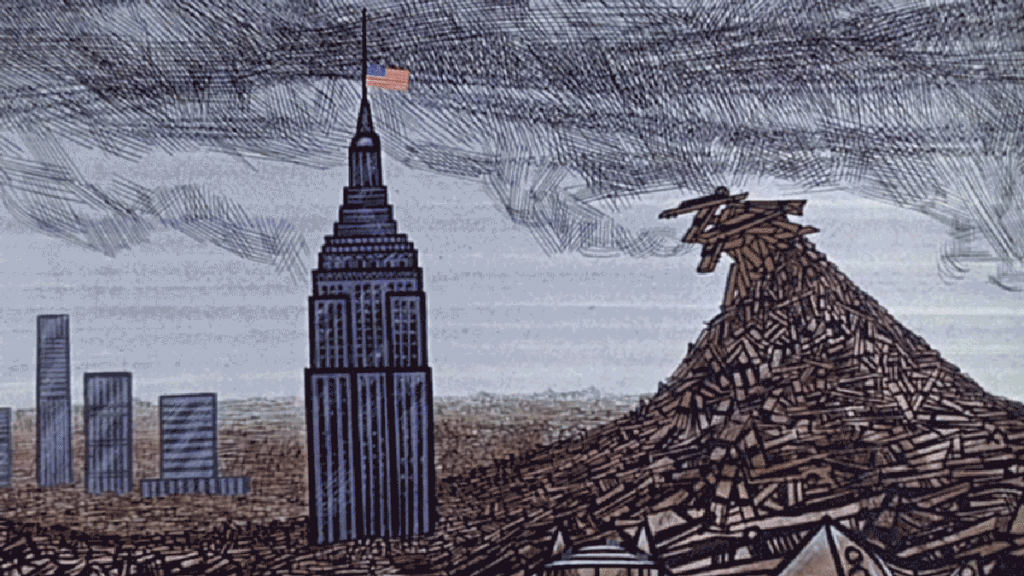This Darkly Funny Cartoon Predicted Our Giant Car Obsession 60 Years Ago

Gif: Network Distributing/YouTube
Predictions of the future are always fun to re-examine years later. Some can be so completely off base, but the ones that hit too close to home are the ones poking fun of problems in their own time. Nothing ever really changes.
Racing Tech | How Formula E’s New Front Powertrain Extends Battery Life on its Race Cars
In case you missed it:
Rampant consumerism and a car-centric lifestyle were ripe for ribbing in 1963 when the small, UK-based animation studio Halas and Batchelor (the folks behind the wild 1981 animated film Heavy Metal) produced its Oscar-nominated short Automania 2000.
Halas and Batchelor – Automania 2000
You really should watch the entire nine or so minute short, but if you don’t have the time or headphones I’ll sum it up for you: It’s a look into the not-too-distant future of the year 2000. Science has released the entire planet from any concerns of hunger or want. Humanity, free from burdens such as cooking food or producing electricity, focus instead on the ceaseless acquisition of bigger versions and more of the objects now produced effortlessly by miracles in engineering.
The result isn’t exactly as Star Trek-style utopia as you’d hope (probably because Star Trek wouldn’t air for another three years). Cars become so big and pile up so fast that humans are forced to live in their cars unable to move through literal piles of traffic.
And even still! With cities drowning in cars people buy more cars in order to park on top of their neighbors and win a pointless war of keeping up with the Joneses. So science comes up with the self-replicating car to finally satisfy consumer demand for more cars; a sort of Grey Goo scenario.
I love everything about this cartoon: the dark humor, the dystopian consumerism, the focus on how car-centric lives lead us to accepting ridiculous living conditions, the over-serious narration from actor Ed Bishop — it’s all extremely my jam. I especially like when the desires of consumers and the messaging from everyone from manufacturers to “psychologists” leads to longer and larger vehicles. When the cars finally all stack up on each other, they’re big enough to comfortably house a family of four anyway.
How silly! Could you imagine? Buying bigger and bigger cars until they threaten our very way of life? Who would do such a thing?







